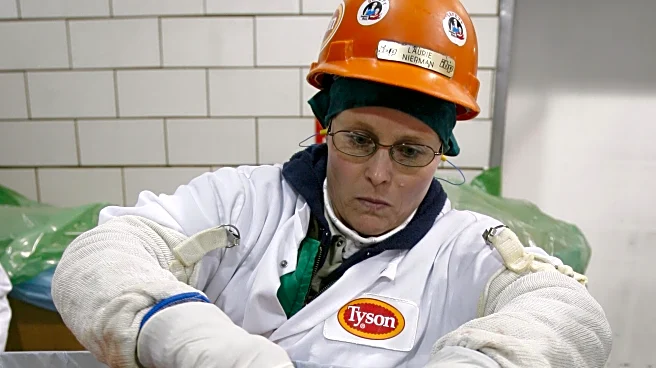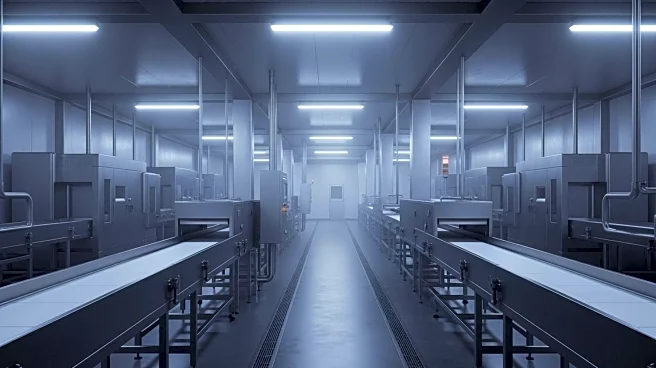What's Happening?
Tyson Foods has announced the closure of its beef-processing plant in Lexington, Nebraska, as part of a strategy to 'right size' its struggling beef segment. The decision follows a year of declining beef volumes and an adjusted operating loss for the segment in fiscal 2026. Tyson plans to convert its beef facility in Amarillo, Texas, to a single shift to optimize operations. The closure is a response to record-low cattle supplies due to drought and other factors, which have created market headwinds. Tyson aims to position its beef operations for long-term success by increasing output at other plants and offering relocation benefits to affected workers.
Why It's Important?
The closure of Tyson's Nebraska plant is significant as it highlights the ongoing challenges
in the U.S. beef industry, including tight cattle supplies and financial losses. The decision impacts the local economy, affecting thousands of workers and potentially driving up beef prices due to reduced processing capacity. Tyson's move reflects broader industry struggles with supply chain issues and changing consumer preferences. The closure may lead to increased reliance on chicken and other meats, as beef supply remains constrained. The USDA forecasts further declines in domestic beef production, emphasizing the need for strategic adjustments in the industry.
What's Next?
Tyson Foods plans to increase output at other beef plants to meet customer demand, while offering relocation benefits to affected workers. The company projects continued losses in its beef segment for fiscal 2026, with an expected operating loss between $400 million and $600 million. The USDA anticipates a 2% decline in domestic beef production next year, suggesting ongoing supply challenges. Tyson's strategic adjustments may influence other meatpackers to reevaluate their operations amid tight cattle supplies. The industry may see shifts in consumer preferences towards alternative proteins, impacting market dynamics.

















